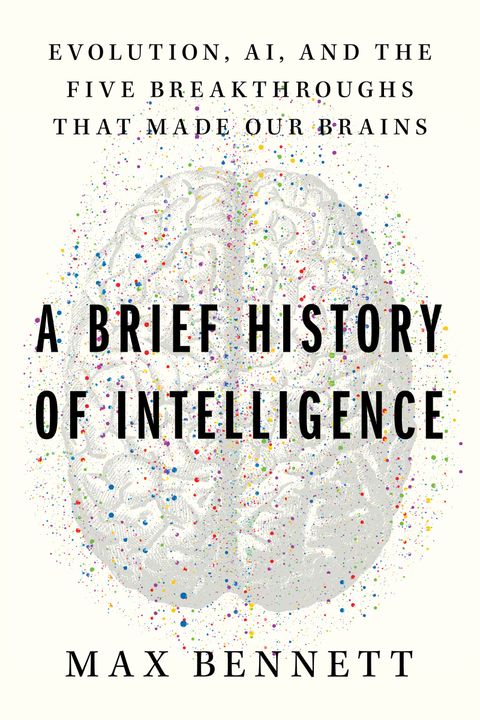 The story is compelling; it is one of the most important and challenging questions we can face: What makes us unique? It is well told and includes sufficient detail to be informative, while written in language that general audiences will find approachable. Bennett seems to have adopted Stephen Jay Gould’s approach to never “dumb down” complex ideas.
The story is compelling; it is one of the most important and challenging questions we can face: What makes us unique? It is well told and includes sufficient detail to be informative, while written in language that general audiences will find approachable. Bennett seems to have adopted Stephen Jay Gould’s approach to never “dumb down” complex ideas.
I started life intending to be a biology teacher, so Bennett’s story of the capacities that led to intelligence and the organisms in which they first appeared made sense. We see the connections between life on Earth and the fact that natural selection can design incredible organisms. Through this approach, Bennett strips away much of the chatter and noise that enters our discussions when we think about intelligence. We see how intelligence was built.
In the final chapter, which almost seems and afterthought, Bennett does consider generative artificial intelligence, and describes the differences between how it works and how human intelligence works. I was left being more assured natural intelligence and artificial intelligence are fundamentally different things despite the similarities in their behavior.
The one complaint I have about the book is the way Bennett approaches natural selection. He often uses teleological language, so readers are left with the sense that the adaptations, changes that just happened due to random variation in genes and selective advantage conferred on offspring, were “for” a purpose. Sure, being able to steer towards or away from some signal had advantages for living things, but the change wasn’t made “to” benefit those that could. I’ve read lots of books and articles about evolution, so I know this is often done to make the work easier to read. I get that, but I think readers deserve to be told by authors, “yes, I am using this language, and this is why.”
The second part of my complaint about how Bennett approaches natural selection has to do with the directional nature of the story. Surely, it is a directional story, but that does not mean the story was inevitable. If we returned to the first organism that first displayed any of Bennett’s breakthroughs, we may never end up with intelligent humans ever again.
The story of human intelligence is so fascinating because it arose through natural selection. I wish Bennett had been as clear with this part of the story as he was with the rest of it.